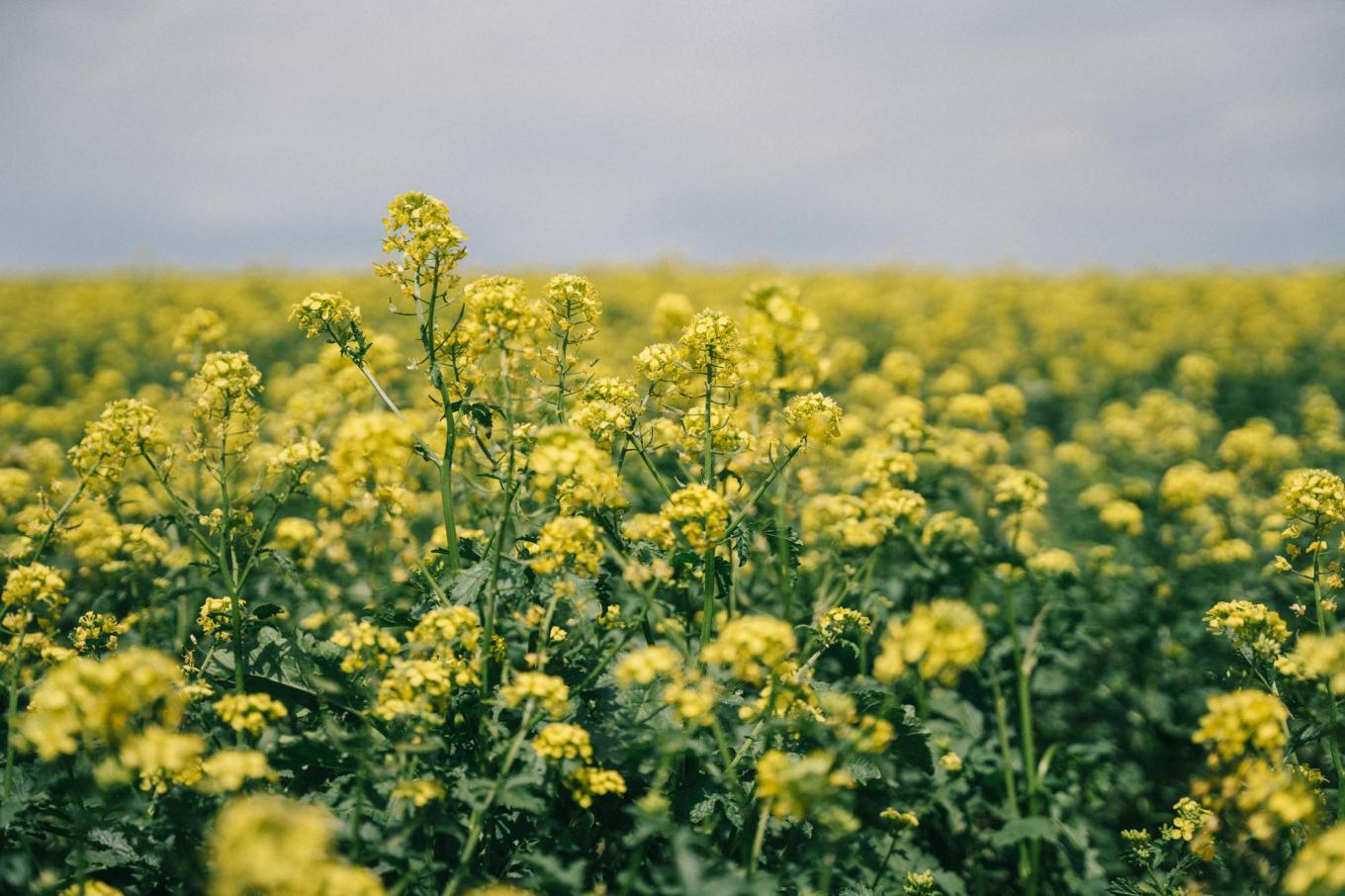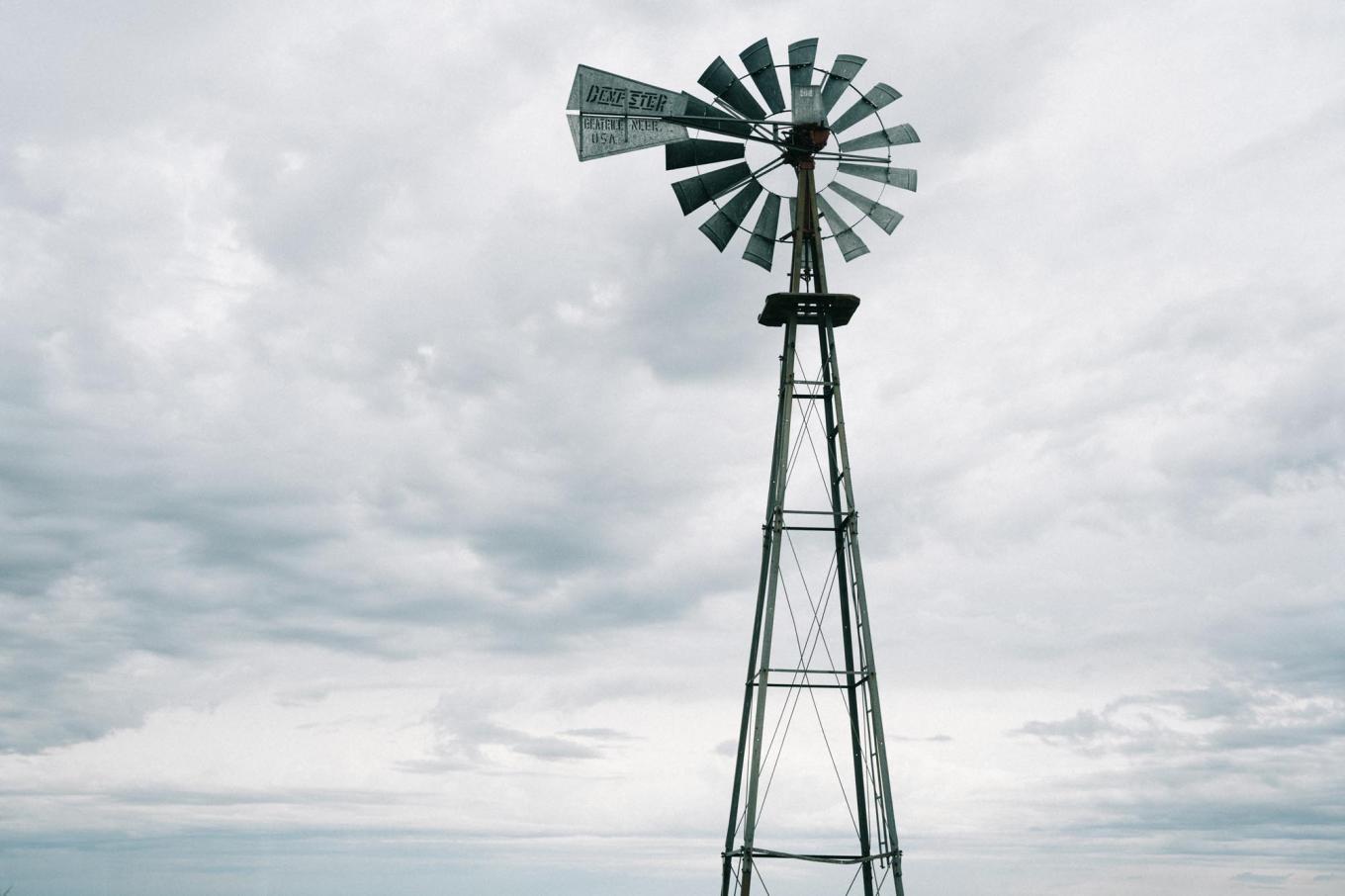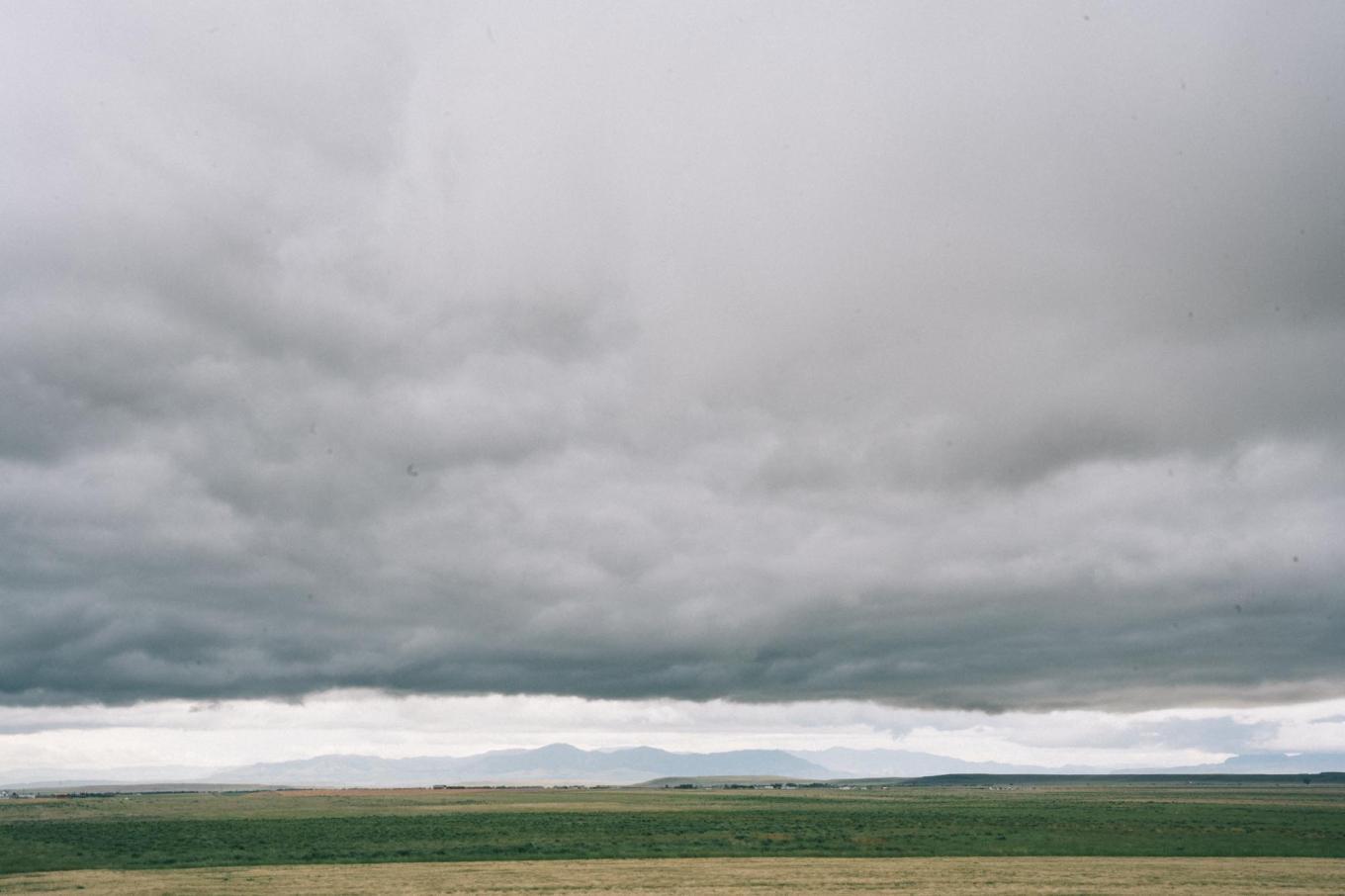
The Mad Agriculture Journal
You Are More Than This Farm
Published on
June 04, 2025
Written by
Sophia Jasmine Vanderheym
Photos by
Jane Cavagnero
The Mental Health Crisis in Rural America
Disclaimer: This article is intended for informational and storytelling purposes only. It is not written by a licensed mental health professional and should not be used as a substitute for professional diagnosis, treatment, or advice. If you or someone you know is struggling with mental health, please seek support from a qualified provider or contact a local mental health resource. You are not alone, and help is available.
As society moves deeper into a digitized age, some Americans find themselves daydreaming of farming as an idyllic second career—a life of open skies, self-reliance, and a sense of purpose rooted in the land. Despite the nostalgic appeal, the lived experience of farming today is often marked by financial strain, long hours, and mounting uncertainty. Since the 1980s, researchers like Judith and William Heffernan have documented farming as one of the most isolating and financially precarious professions, conditions that have contributed to agriculture having one of the highest suicide rates in the U.S.
Today’s farmers face intensifying pressures: rising climate volatility has led to increasingly unpredictable growing seasons and declining yields in key regions. According to the USDA, extreme weather events now account for a growing share of crop insurance claims nationwide. Simultaneously, political uncertainty has eroded critical support structures, with several federal and state programs facing budget cuts or expiration. In some cases, farmers have had to mobilize to retain access to essential online resources and platforms that connect them to grants, critical data, technical assistance, and market tools.
As these challenges escalate, farmers—stewards of our food system—urgently need meaningful resources to navigate the compounding pressures of economic instability and social isolation. Addressing this crisis requires more than awareness; it calls for collective action to strengthen and scale the solutions already taking root.

The Green Revolution: An Era Ushering in Efficiency and Exploitation
“We pulled into a little clearing, and in the middle of it was a log cabin. He pointed and said, ‘My great-great-grandmother was born in that house. I’m the sixth generation on this land. My kids will be the seventh. And I’m not going to be the one to lose it.’”
This story, shared with farmer advocate Scott Marlow, former USDA Senior Policy Advisor and Founder of Long Rows Consulting, reveals just how deeply farming is tied to identity and generational legacy. After more than a decade of helping farmers through their most vulnerable moments, including financial ruin, identity crisis, and profound grief, Marlow explains that the mounting pressure can be traced back to the industrialization of agriculture, a system that was “built to run people out of it [agriculture].” Since the mid-20th century, agricultural policy has prioritized scale and mechanization over farmer well-being.
The push for “efficiency”—mechanization, consolidation, and monoculture—wasn’t a fluke; it was an intentional design choice. Industrial ag has created what Marlow calls the Agricultural Hunger Games. In this brutal zero-sum environment, survival means constantly outperforming your neighbors, expanding your acreage, and doing more with less. Farmers today are expected to operate on the bleeding edge of innovation, debt, and exhaustion; for many, the ominous threat of losing the farm is never far away.

Failure to keep the farm and its workers afloat often feels personal and many farmers internalize systemic outcomes as their shortcomings.“You hear it all the time,” Marlow says. “‘I must be the worst farmer you’ve ever seen.’” In a recent Mental Health Community Survey (access MAD’s survey in the Mental Health Resources section below) conducted by Mad Agriculture, a farmer (who wished to remain anonymous) echoed this sentiment, reflecting that “sometimes I feel like I’m not a ‘real’ farmer because I don’t own my land.” But most mental health crises in agriculture aren’t due to personal inadequacy—they’re the result of a system designed to concentrate land, minimize labor, and externalize risk. Moreover, Marlow notes that, “the very attributes we admire about farmers (their independence, connection to land, and hard work) become an economic disadvantage, forcing many growers to find off-farm work to finance their farming habit.”
Even those who comply with the system—adopting synthetic inputs, larger equipment, and high-volume production—find themselves locked in an extractive cycle that degrades soil health and minimizes ecosystem resiliency to fight climate-induced weather hazards and damages the surrounding biodiversity and quality of the land. This isn’t independence—it’s a cycle of extraction.
And yet, even within this struggle, the experience is far from monolithic. The toll of systemic pressure hits harder when compounded by racism, sexism, homophobia, and intergenerational trauma. The culture of farming, rooted in stoicism, self-determination, independence, and relentless grit, can obscure the unique challenges faced by underrepresented farmers, whose experiences are often overshadowed by the dominant narrative. Over the last few decades, millions of smallholder farmers have been pushed off the land—particularly Black farmers, women, and LGBTQIA+ growers. USDA data shows that the number of Black farmers in the U.S. has dropped more than 90% in the last century. Meanwhile, land access for new and aspiring farmers has become increasingly competitive and cost-prohibitive.

A Culture of Silence: A Double-Edged Sword
When farmers lose their land, they don’t just lose a business—they lose a legacy, a way of life, and a core part of their identity. Grief sets in quietly, and the culture of farming offers little room for emotional vulnerability, and even less for asking for help. Instead, silence becomes a survival strategy—one that cuts both ways.
Farmers who transition into agriculture from other professions quickly confront and battle another sobering reality of the industry: they’re often left to shoulder the bulk of the risk. Despite the volatile nature of weather, pests, and markets, business partners such as lenders, insurers, and distributors rarely share in the consequences of a tough season. Instead, the farmer becomes the shock absorber, carrying the weight of uncertainty largely alone. What’s more, a bad year or financial hardship can seed doubt in the minds of these stakeholders, so farmers learn to mask their struggles, becoming relentless cheerleaders to preserve the appearance of viability. Expressing hardship openly can feel dangerous, especially in rural, tight-knit, or competitive communities where rumors spread and reputations can break a business. This performative optimism is exhausting—and precarious.
And while therapy proves helpful for some, it often falls short for others. As Marlow puts it, “Farmers don’t always suffer from clinical depression. It’s demoralization— the loss of hope from trying everything and still failing.” When farmers do seek treatment, many discover that health professionals unfamiliar with agricultural realities cannot offer relevant support. The result: they don’t return. This slow erosion of hope—demoralization—can manifest as burnout, substance abuse, chronic illness, or suicide.
Uplifting Farmers: Peer Support, Planning, and Purpose
Addressing farmer mental health demands more than awareness, it calls for a structural reckoning. Financial support and more flexible, nuanced funding vehicles are crucial, as is ensuring that business partners share more of the financial risk traditionally shouldered by farmers alone. But as Marlow emphasizes, the path forward also begins with connection. Drawing on years of facilitating workshops and farm advocacy programs, he explains: “Communication is everything. You need to feel connected to a support system and have a plan for when things go south.”

Peer Support Groups & Community Events
Peer support groups are one proven approach. These spaces offer privacy, empathy, and cultural understanding—elements many farmers find missing in traditional therapy. Similarly, workshops and community gatherings that include honest conversations about failure, especially when led by respected farmers or leaders, can foster trust and normalize vulnerability and failure. For Ryan Slabaugh, son of a first-generation farmer and who formerly led Acres USA before founding Think Regeneration, a national coalition advancing regenerative food supply projects, failure is an inherent part of farming. “But when we don’t talk about it,” he warns, “that silence can be dangerous.”
But to talk about failure, supporters must understand one critical observation: avoid framing events as “mental health support.” “No one will come if you say it’s to get help with their mental health,” Marlow notes. “But they’ll come if you say, ‘You might need to help someone else.’” Farmers are natural caretakers; they’re far more likely to show up when the goal is supporting others, not spotlighting themselves. This isn’t just about emotional coping. It’s about building durable, decentralized systems of care—where solidarity, not silence, becomes the norm.
Education is another key lever to help inform and steward a more responsible food future. According to Indigenous farmer and educator Adam Uribe, the mental health crisis is inseparable from ecological disconnection. “We call it Nature’s Deficit Disorder—being disconnected from the land is making us sick,” he says.
Through his work with youth across five different Indigenous communities in Southern California and a robust consulting practice, Adam teaches farming as a form of healing centered around soil health, native habitat, and relationship to place, echoing ideologies beautifully highlighted in Robin Wall Kimmerer’s Braiding Sweetgrass. His students learn to plant, harvest, and store food not for profit, but for reconnection, and from that, a sense of agency and resilience returns.
You are More than Your Farm
At its core, addressing farmer mental health begins with a shift in perspective: recognizing that a person’s worth is not measured solely by the yield of their land or the success of their business. The bottom line: You are more than your farm. For farmers, this truth can be a lifeline, an invitation to prioritize well-being, honor the full spectrum of life beyond the fields, and see challenges not as personal failings but as part of the agricultural journey.
Equally essential are education, inclusion, and community—pillars that support not just individual resilience, but collective strength. Healing the food system requires healing the people who grow it. And that healing often starts with relationships: checking in on a neighbor, spending time with loved ones, or simply telling the truth about how hard it really is.
For consumers, one of the most powerful acts is also the simplest: offer your gratitude. Say thank you at the farmers market. Acknowledge the hands that harvest your food. Because in a world where so much feels out of reach, connection remains our most powerful tool—for resilience, for change, and for care.
*This article is inspired and dedicated in loving memory of Casey Piscura and the work he did to raise seeds for his community and to inspire and educate others about the importance of local and regenerative agriculture.

Mental Health Resources for the Ag Industry
Crisis & Immediate Support
AgriStress Helpline
A 24/7, free, and confidential crisis line staffed by professionals trained in agricultural mental health support.
Call: 833-897-2474988 Suicide & Crisis Lifeline
Nationwide lifeline for mental health crises or suicidal thoughts. Free and confidential, available 24/7.
Dial: 988
Farmer-Specific Mental Health Tools & Networks
Farm Aid
Offers direct support to farmers through a hotline, mental health resources, and advocacy.The American Farm Bureau Federation: Farm State of Mind
A national initiative providing mental health resources, state-by-state hotlines, and stories to break stigma.The Gray Matters Collective
Focuses on mental health advocacy in rural and agricultural communities through storytelling and education.Food & Farm Council (Local Chapters)
Community-based coalitions working to improve mental wellness and food system resilience. Chapters may host coffee hours, peer support events, and advocacy workshops.
[Check your local extension or public health department for chapter information.]Mad Agriculture Farmer Mental Health Survey
Our team wants to hear from you about your lived experience as a farmer. We check responses every few weeks. For immediate concerns please see resources above